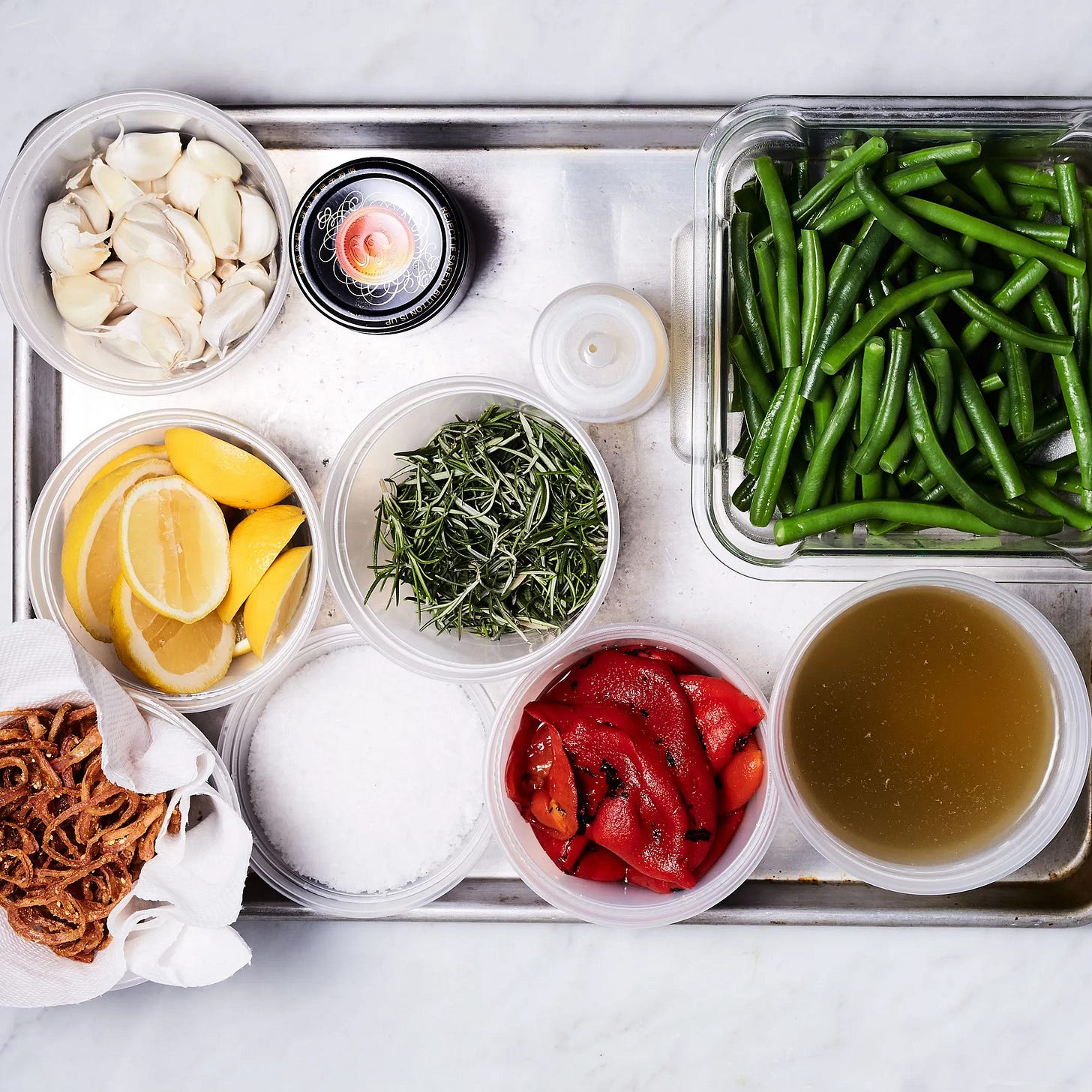The Weeknight Shift
How chefs reclaim time, reduce waste, and cook with freedom all week long.
A Chef’s Perspective on Preparation and Freedom
There’s a familiar moment we all face. The day runs long, energy runs low, and when we finally open the fridge, we find mismatched ingredients, half-empty containers, and not a clear meal in sight. Too often, that’s when takeout wins.
But what if home kitchens felt different? What if they carried the same quiet readiness of a professional kitchen—ingredients prepped, flavors built, the stress stripped away before it even begins?
As chefs, we know that sense of calm isn’t an accident. It’s the result of preparation, rhythm, and foresight. The truth is, it doesn’t just belong in restaurants. It can belong to anyone at home.
The Freedom Factor
Cooking from scratch every single night sounds romantic, but most of us don’t live in that reality. Work, family, and the thousand interruptions of life don’t leave the space for it. That’s why preparation is power.
When you cook once and carry it forward, you reclaim time that would have been lost to chopping, simmering, and starting from zero. Suddenly, a weeknight dinner isn’t a hurdle—it’s an easy assembly. Ten minutes of combining prepped components instead of an hour of stress.
Think about what you could do with that time saved. Sit with your family longer. Read. Rest. Or even just cook with more joy, because the heavy lifting is already done.
Fuel Without the Compromise
Quick meals often mean compromises—processed shortcuts, convenience foods, or drive-through dinners. We’ve all been there.
But when the foundation is already built—when the base of your meal is whole, nourishing, and prepared with care—your “fast food” becomes fuel instead of filler.
Imagine opening the fridge and finding roasted chicken, fresh grains, crisp vegetables, and vibrant herbs, all ready to be assembled. Suddenly, the fastest option is also the healthiest. The choice isn’t between speed and nutrition—you get both.
Stretching the Budget, Reducing the Waste
Anyone who’s worked in a kitchen knows waste is the enemy. Every trimmed herb stem, every leftover bone, every scoop of stock has a purpose. At home, that philosophy is even more important.
Cooking once with intention means buying in bulk, using what you have, and stretching one effort into several meals. It’s not just about saving dollars—it’s about shifting how we see ingredients. That roast chicken isn’t just dinner tonight. It’s sandwiches tomorrow, soup the next day, stock by the weekend. Nothing lost, everything gained.
When we stop treating each meal as an isolated event, food costs less, waste drops, and the ingredients we do buy work harder for us.
The Bigger Picture
We often ask ourselves: why do we put so much pressure on cooking as a nightly performance? Why does every evening feel like starting from scratch?
Professional kitchens don’t work that way. They prepare. They set the stage. And when it’s time to cook, it’s more about assembly, finishing, and refinement than starting at zero.
What would it look like if our home kitchens worked the same way? What if the stress of dinner was replaced by the freedom to improvise, to create, to enjoy?
OneBatch
That’s the idea behind something we call OneBatch. It’s the mindset of cooking once and letting that single effort carry you through the week. One thoughtful preparation that unlocks many meals.
We’ll be exploring this more in the weeks ahead—not just recipes, but systems, ideas, and approaches you can adapt to your own life. Because when we free ourselves from cooking as a nightly scramble, we gain the freedom to cook with intention.
Question
How do you approach the week? Do you plan meals in advance, or do you cook in the moment? What’s the ingredient you always rely on when you’re pressed for time?
Share your thoughts in the comments—we’d love to hear your strategies, struggles, and go-to solutions. And if you want to follow along as we continue exploring this idea, subscribe for free so you don’t miss what comes next.
Because food isn’t just about feeding ourselves—it’s about building systems, sharing ideas, and shaping culture together.

